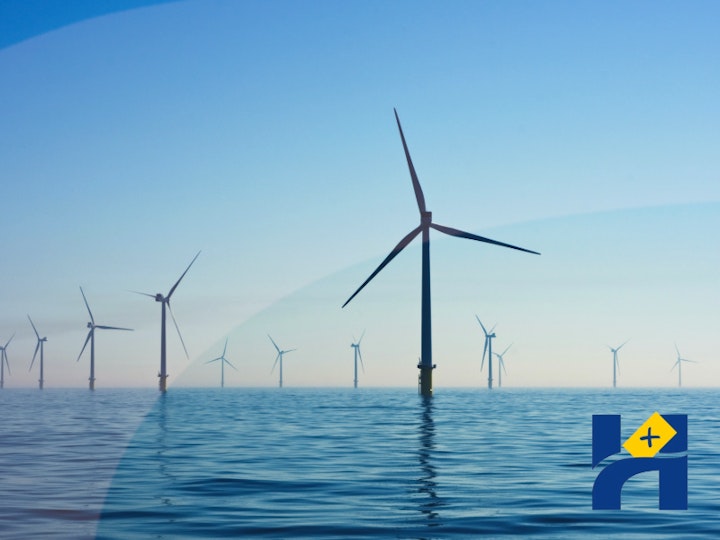Growth and Great British Energy - a Labour dream?
Will Labour's Great British Energy plan be able to secure funding to provide more jobs and provide carbon free electricity? Professor Brian Scott-Quinn takes a closer look at the proposals for our Ballot Box series.

Labour have presented a proposal to ‘switch on’ Great British Energy (GBE) – a new publicly owned, clean power company for Britain. In some ways this could be good to return to the 'good old days' when the UK had a state-owned Central Electricity Generating Board (CEGB). The CEGB could make decisions based on the needs of the whole power system in the country, enabling it to co-ordinate policy for the whole industry. Different to GBE, however, CEGB owned most of the power systems, whereas Labour’s proposals do not involve a re-nationalisation of a system which was privatised in 1987.
So, the key question is what could this new arrival on the power industry scene achieve as a niche investor in the industry?
The problem of branding
GBE could be described as a ‘levelling up’ project or a ‘decarbonisation’ project – but Labour is avoiding association with both concepts, as far as can be seen from the extremely brief document available. That’s because the word “de-carbonisation” would not bring in many votes.
It’s a similar strategy to the naming of the Inflation Reduction Act (IRA) in the United States which is actually a decarbonisation act. In practice, it is more likely to increase inflation due to the huge subsidies to green power in an economy already at full stretch. But of course by so naming it, it’s more likely to bring in the Democratic vote than promising de-carbonisation.
Also reading through the Labour part document entitled ‘VOTE TO SWITCH ON GREAT BRITISH ENERGY’, it’s not directly marketed as about “levelling up” either - even though in practice that does seem one of its main objectives. But the expression “levelling up” has been so abused that it too is no longer the mot du jour.
Will GBE create more jobs?
So what is it about? According to the document describing it, “Great British Energy is part of Labour’s Green Prosperity Plan to create 650,000 good jobs, cut bills by £300 on average and deliver real energy security.” We like those objectives - who wouldn’t?
But as the UK has a labour shortage at the moment, those 650,000 jobs will have to come mostly from other industries downsizing. There is little on what jobs these will be. To the extent that they are jobs installing insulation and heat pumps in homes throughout the country, this will not be achieved without a massive subsidy from the state. It requires a huge amount of retraining and financial incentives (higher wages) to entice people into a new career. Consequently, it is likely to exacerbate labour shortages in some areas of the country and to some extent, fuel inflation.
Will GBE secure funding?
The first thing to say about financing this project is that shortage of funds is not actually the problem. Foreign investors are always willing to invest in projects where they see the likelihood of a satisfactory return given the risk they have to bear. Any new body, then, is more likely to help the industry if it offers risk mitigation services of the type that the UK government provided to the Thames Tideway Tunnel (Tideway) project some years ago rather than offering a little bit of cash. But that does not seem to be the aim.
To date, few people have insulated their homes or installed a heat pump due to the high cost involved. But if the state does provide the high level of subsidy required in order to achieve domestic decarbonisation, unfortunately there is no real return to the country from its investment. Any return accrues to households in the form of lower energy bills but the state is left with having to issue more debt with no additional source of revenue from which to service it. So, who will provide the necessary financing for home insulation and provision of energy infrastructure?
The only way Great Britain, to date, has been able to finance so many of its infrastructure projects given its huge balance of payments deficits over the years has been through encouraging overseas investors to bring their money to the UK. One of the large investors in the GB energy system is EDF which is not a state but a utility owned by the French state. That is very different from being a state investment. The next sentence in the document states, “Taxpayers abroad profit more from our energy than we do.” While in some cases that is true, it’s a question of who is willing to take the financial risks and if the risk taking is being appropriately rewarded.
In the case of EDF it has certainly not been rewarded on recent projects. In fact it has lost £13 billion by agreeing to the UK government’s request to help finance the Hinkley Point C project in Somerset which could not have been financed without overseas funding. But if asked to help finance decarbonisation of residential and commercial property by providing insulation services and a heat pump for every flat or home, it would almost certainly say no. What it might be willing to do, however, would be to install district heating systems - particularly if it is able to move ahead with its plans for small modular reactors which require cooling and can thus provide heat at low cost provided the reactor is close to a city or town. District heating did not, however, seem to feature in the plan.
Carbon free electricity – just a dream?
The document states that one of the objectives of the GBE creation is to enable 100% carbon free electricity by 2030. Certainly, that would be great if it could be achieved. At present one of the principal uses of natural gas in the power system is to cover periods when there is insufficient 'dispatchable' power available from renewables. There is no suggestion in the document as to how the last 10% or even 20% of decarbonisation can be achieved in this time scale. Unfortunately, the cost of that last 20% is also very high indeed. It involves a huge amount of long-duration energy storage to cover days which are windless and dull. Even more is required when there are wind “droughts” as we have had across Europe in recent years. Importing power from Europe at such times is clearly not a solution. Even demand management (some customers agreeing to have their power cut off at certain times) would not be likely to enable supply and demand to match. So, until Labour explain how they can achieve all this within five years, I think we have to continue to wonder what GBE will actually achieve.
If we look at how China financed its dramatic economic growth over the last couple of decades, it ensured that people saved a lot of their income so these savings could be used to finance infrastructure development and new industries. Sadly, that solution to the financing problem is not available today in the UK. We don’t have millions of low productivity farm workers emigrating to our cities which is how inflation has been kept down. We would also have a problem if UK consumer spending suddenly plummeted as this would actually lead to negative growth until the savings were invested in new factories, technologies and infrastructure. We also know that while one person increasing their saving is good, if everyone does it at the same time, the collapsing economy would mean job losses and a fall in total savings rather than an increase.
It seems that – short of a miracle - there are just too many binding constraints on our economy today for GBE to be realistic, let alone a success. There is no deus-ex-machina to enable us to declare that “with one bound, our hero Keith, was free at last.”
Next article in the Ballot Box series: Race and anti-racism in the UK General Election



